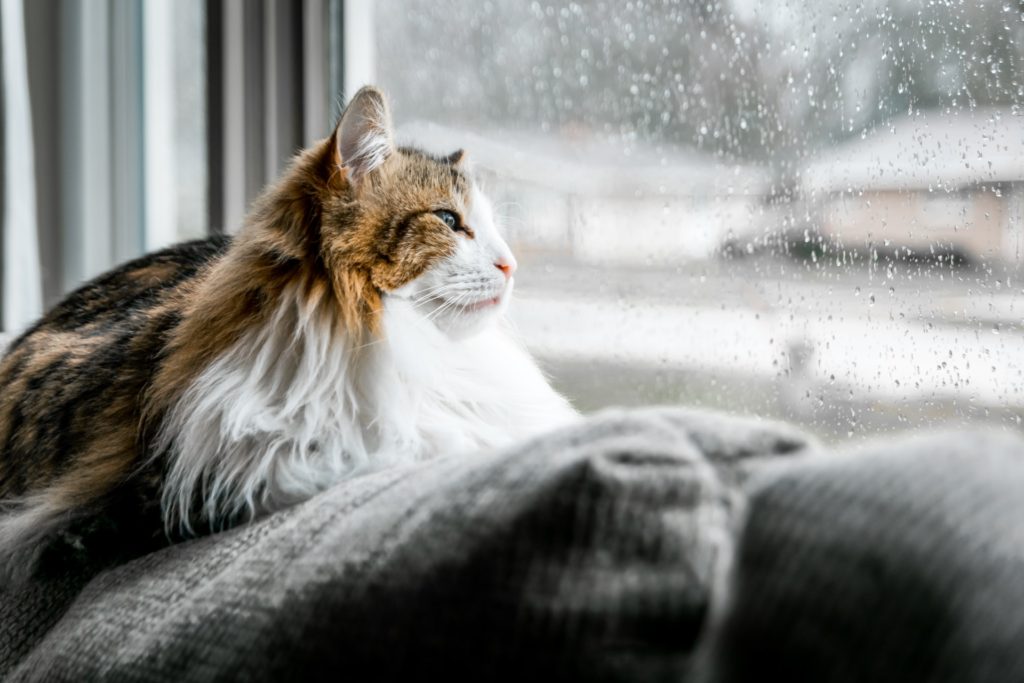Cat Dementia
Cats are living longer these days which is great, however, unfortunately along with that old age can come a disease known as Cognitive Dysfunction Syndrome (CDS), also commonly known as cat dementia.
Cat dementia, also known as feline senile dementia, is a slow progressing degenerative disease that starts by exhibiting behavioural changes. You may first notice your cat start to show a decline in cognitive abilities such as learning, memory, attention, and spatial abilities. This slow decline of cognitive abilities tends to happen around 11 – 12 years old. Cat dementia typically sets in around age 15 years.
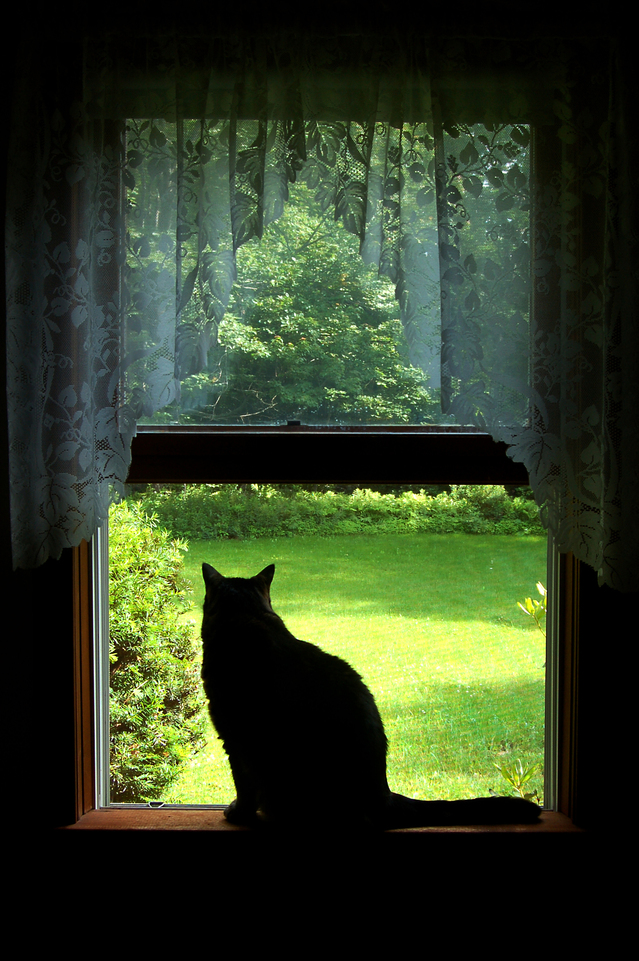
Some common behavioural changes that can occur in cats with CDS include:
- Spatial disorientation, which is a fancy term for being confused about where they are (examples of this include being trapped in a corner, forgetting where their litter bin is, etc.)
- Temporal disorientation, which is confusion over time (examples include forgetting that they have just been fed)
- Changes in sleep-wake cycles, which means that the cat is awake when they are typically asleep and vice versa
- Going to the bathroom in the house
- Inappropriate vocalisation (loud meowing, crying, or howling at night)
- Altered behaviours dealing with owners and/or other pets in the home (increased attention seeking or increased aggression)
- Lack of grooming or excessive licking
- Change in appetite (typically a decrease interest in food)
- Changes in mood (more irritable, anxious, or decrease in responsiveness)
- Changes in learning and memory (forgetting training commands and litter training)
- Changes in activity (more lethargic, aimless wandering or pacing)
Diagnosis
Getting a diagnosis of feline senile dementia can sometimes require a good deal of investigating. In order to help aid your vet with a diagnosis, start a list of behavioral changes you notice in your cat as well as when you notice those changes begin and end.
A diagnosis typically means that your vet will do tests to rule out the list of other potential illnesses that could be occurring. Other illnesses that may have overlapping symptoms include:
- Hypothyroidism
- Hypertension (high blood pressure)
- Sensory decline (such as blindness or deafness)
- Arthritis or chronic pain
- Brain tumors or other neurological issues
- Kidney disease
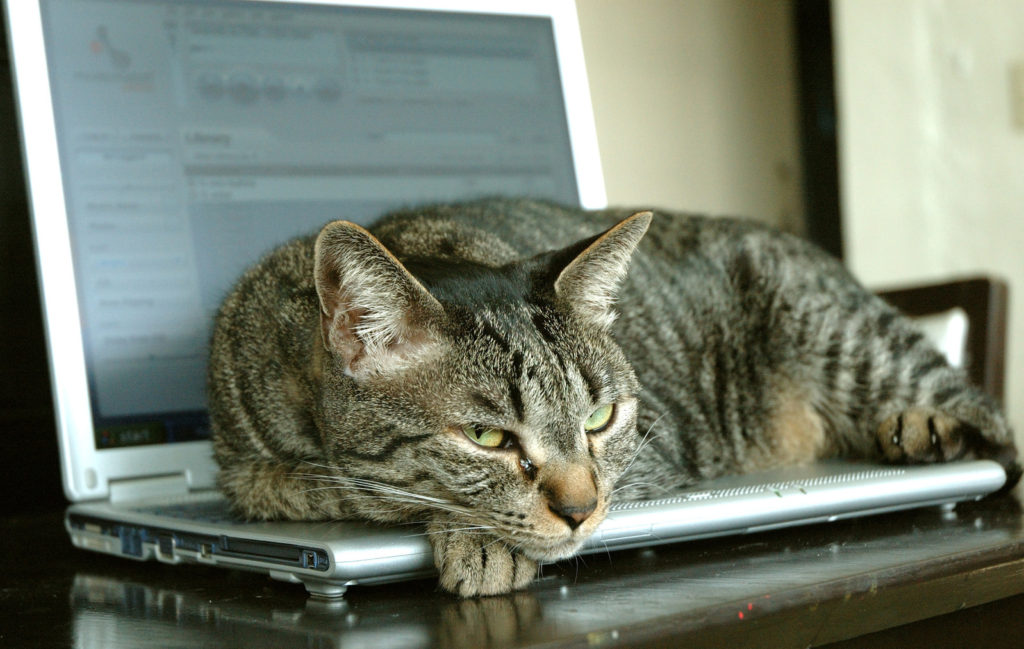
Depending on the degree to which your cat suffers from CDS, there are things that you can alter in their environment that can help increase their cognitive function. This ‘environment enrichment’ can increase mental stimulation as well as increase the growth and survival of nerve cells in the brain and increase cognitive function.
Environmental Enrichment for Cats Beginning to Show Signs of CDS
Determining the degree to which your cat has CDS is important because in the initial stages it is beneficial for you to offer more stimulation to your cat’s environment, whereas if your cat is in the later stages of CDS it is better for you to not change anything in your cat’s environment.
Environmental Enrichment for Cats Beginning to Show Signs of CDS
In the early stages, making gradual changes in your cat’s environment can actually help your cat with CDS by essentially exercising their mind. Offer your cat more toys and hiding places. Increase the amount of attention you spend on your cat by offering more affection and more play time. Puzzle feeders are also a good way to help exercise your cat’s mind.
Make Adjustments to Your Cat’s Environment to Make Them More Comfortable
As your cat ages, they may not be as agile as they once were. Having CDS can be very frightening and frustrating for your older cat, so you should take extra steps to help provide as much comfort as possible. Food and water bowl placement, for example, can make a huge difference. Bowls should not be placed somewhere high that requires your cat to have to jump to access them. Instead, provide a ramp they can use so that jumping isn’t necessary or offer a slightly elevated bowl they can access from the floor. Offering multiple bowls is helpful as well.
Offering cozy beds, possibly even heated beds, for your geriatric cat is another thing you can do to make them more comfortable. Cats with CDS can easily become overstimulated or stressed so offering them their own quiet space, maybe in a room by themselves, can really help them stay at peace. Another added comfort could be providing softer litter, like sand, to their litter box.
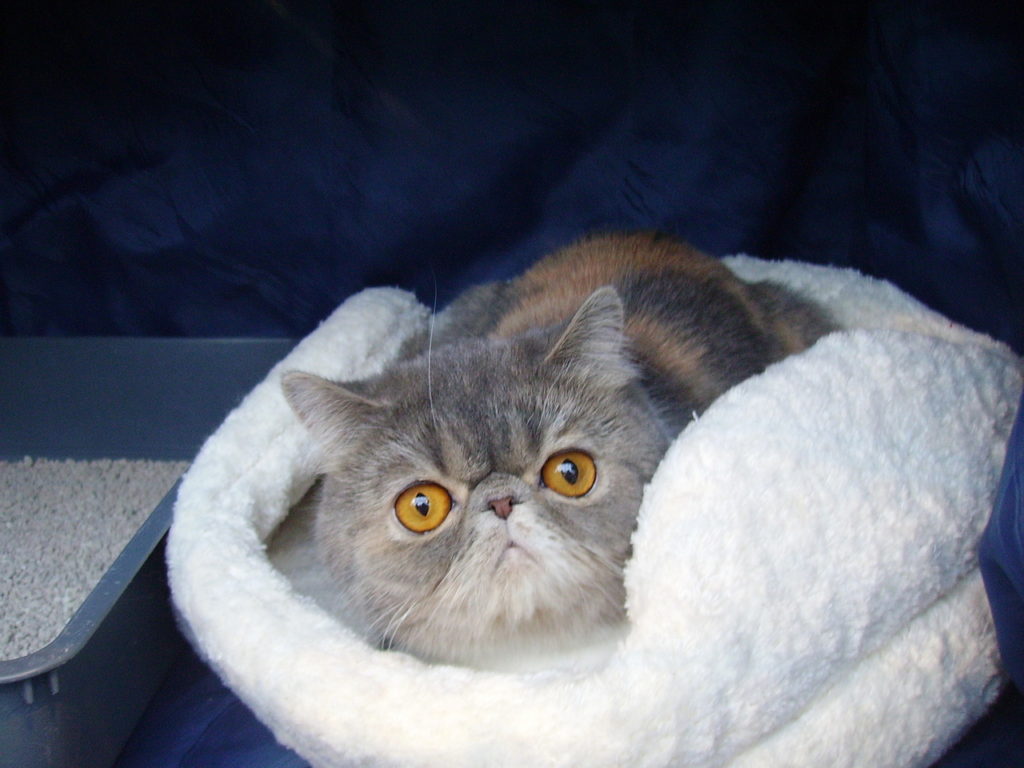
Do not move furniture around and try to avoid introducing any new pets during this time in your cat’s life. Leave a night light on for your cat, to help with confusion when the lights go out at night.
As your cat’s other senses, like sight and hearing start decline, their sense of smell becomes more important so ‘scent markers’ can really help them out. Old scratching posts, cloth toys, and beds with your cat’s scent on them all become ways that your cat can be reminded that they are safe in their familiar home and ‘territory’ even when they become confused.
Cats with Advanced Cognitive Dysfunction
As mentioned above, determining what stage of cognitive dysfunction your cat is in, is important to how you proceed with treatment. If your cat is in a fairly severe stage of cognitive dysfunction, it is better if you do not change their environment at all. Changes made to their environment at this stage may cause more confusion and can, in turn, make matters worse. Introducing changes to cats in this stage can be detrimental, causing more stress than it’s worth. Therefore, if changes cannot be helped, keep them to a minimum. Additionally, you may find that reducing the amount of space your cat has access to may help them feel more safe and secure. Offer a comfy bed, food, water, and litter box, all the key essentials they need.
Treatment
Unfortunately, at this time there is no cure for CDS, but there are a few things that can help. Diet changes have been shown to help improve cognitive function and drug therapies can help offer some symptom relief.
Diet
Look for foods that are rich in the following nutrients to help promote brain function:
- Antioxidants
- Vitamin E and C
- Selenium
- Flavonoids
- Beta carotene
- Carotenoids
- Omega-3 fatty acids
- Carnitine
There are also supplements you can give to your cat that contain these ingredients as well.
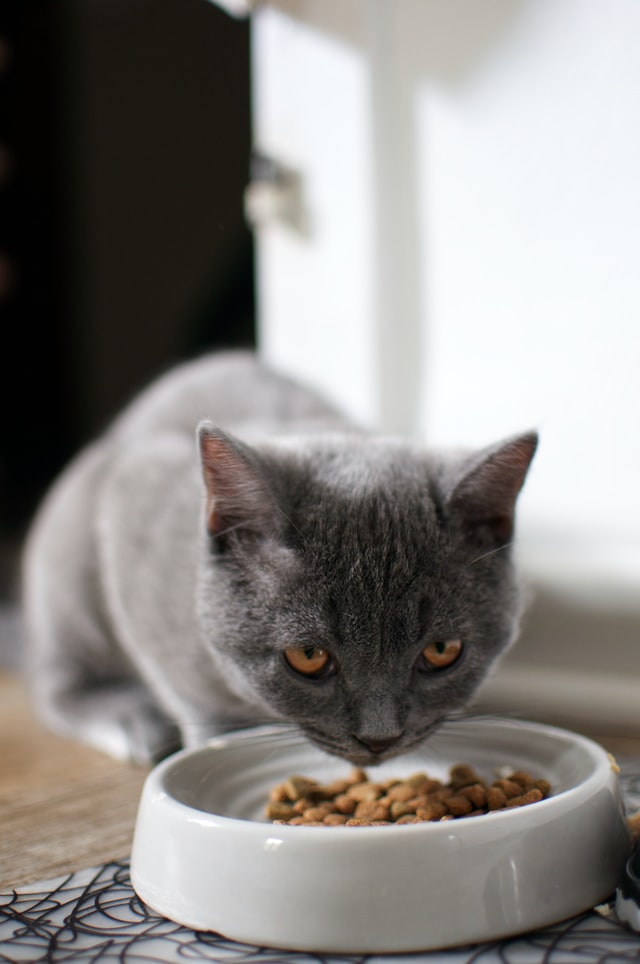
Drug Therapies
Being that there is no current medicine or cure for CDS, any drugs that may be prescribed are to make your cat more comfortable. The most common drugs being used are anti-anxiety and anti-depressants.
Propentofylline can also be prescribed. It can improve your cat’s energy levels and concentration as well as increasing blood flow. Selegiline hydrochloride is another drug used.
“It enhances the amount of chemicals within the brain that act as messengers between individual nerve cells and prolongs the activity of your cat’s remaining dopamine. “ (www.maxxipaws.com)
SAM-e is a supplement that has shown promise with cats with cognitive dysfunction. It helps increase dopamine function in the brain stimulating brain function and works as an antioxidant. Studies have shown that as a cat ages, their concentration of SAM-e decreases so investing in a supplement is beneficial.
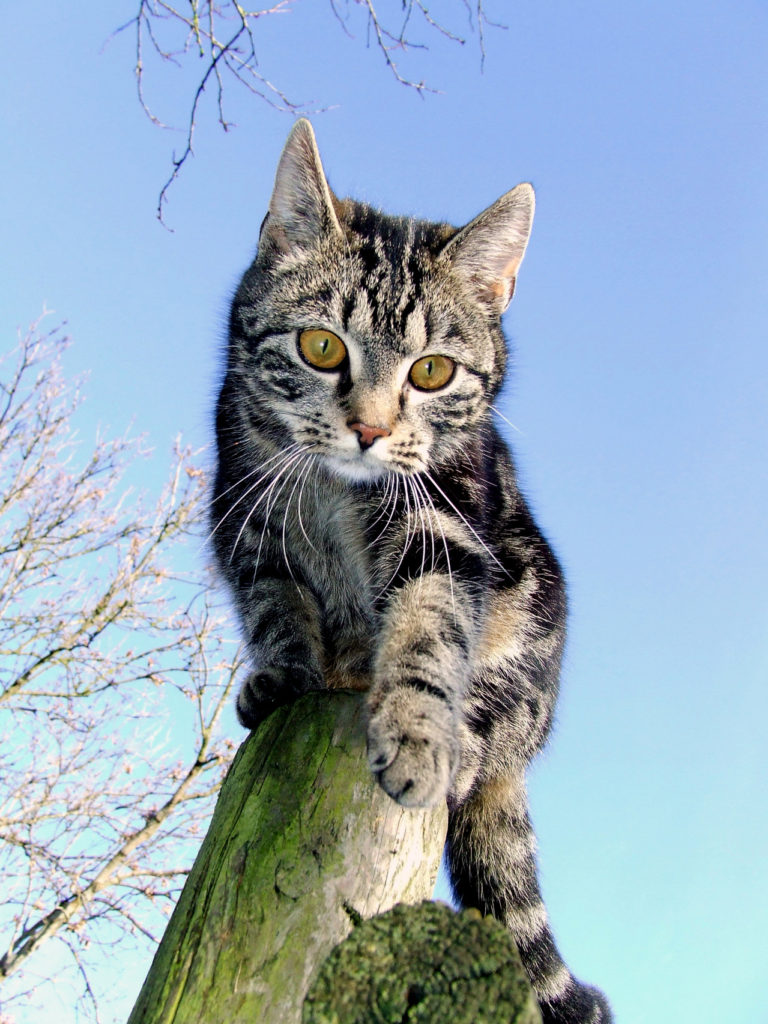
CBD Oil
While there are no studies done specifically involving CBD oil and cat dementia, pet owners are claiming that cbd oil has made a world of difference in their cats. It is not a cure by any means, but it is something that can help you and your cat live out their last years in peace.
Some of the benefits reported from using CBD in cats with dementia include:
- Decrease in anxiety
- No more howling at night
- Able to properly use the litter box again
- Decrease in stiffness and pain
- More playful and active
conclusion
Unfortunately, although cats are living longer, they are potentially having to deal with cognitive decline. Fortunately, there are certain things we can do to make them more comfortable and help them through it.
In the early stages, you can help by making your cat’s environment more interactive. However, environmental enrichment is only helpful for cats in the beginning stages. In the later stages of CDS, it is better to focus more on keeping your cat comfortable. If you notice your cat seeming to be confused or getting lost in the house, limiting your cat’s space to a small area may make him feel more secure.
Diet and some drug therapies may help, although there is no current cure to CDS. Pet parents have had good results using CBD oil to help calm their cats.
Have a cat with dementia? What are some things that you have done to help out your senior cat?

